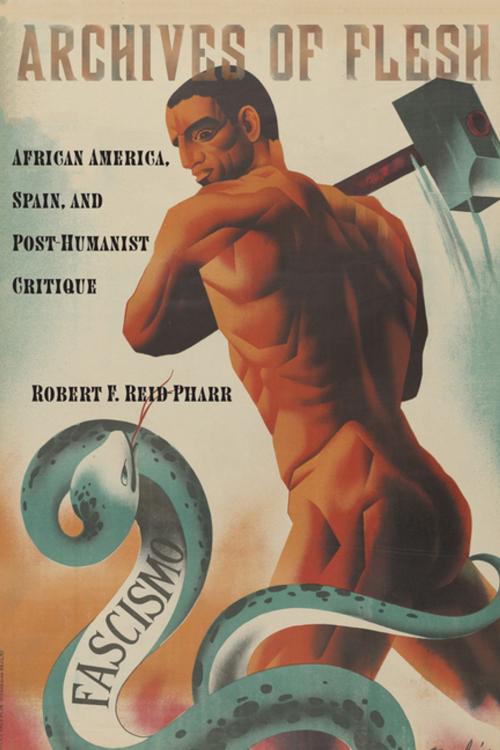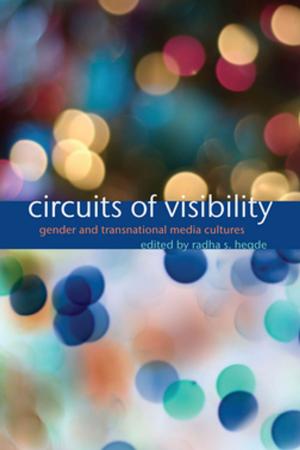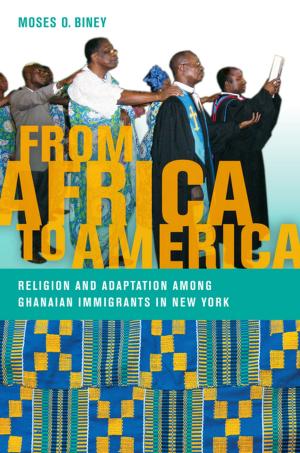Archives of Flesh
African America, Spain, and Post-Humanist Critique
Nonfiction, Social & Cultural Studies, Social Science, Cultural Studies, African-American Studies, Gender Studies| Author: | Robert F. Reid-Pharr | ISBN: | 9781479830015 |
| Publisher: | NYU Press | Publication: | December 13, 2016 |
| Imprint: | NYU Press | Language: | English |
| Author: | Robert F. Reid-Pharr |
| ISBN: | 9781479830015 |
| Publisher: | NYU Press |
| Publication: | December 13, 2016 |
| Imprint: | NYU Press |
| Language: | English |
Enlists the principles of post-humanist critique in order to investigate decades of intimate dialogues between African American and Spanish intellectuals
In Archives of Flesh, Robert Reid-Pharr reveals the deep history of intellectual engagement between African America and Spain. Opening a fascinating window onto black and anti-Fascist intellectual life from 1898 through the mid-1950s, Reid-Pharr argues that key institutions of Western Humanism, including American colleges and universities, developed in intimate relation to slavery, colonization, and white supremacy. This retreat to rigidly established philosophical and critical traditions can never fully address—or even fully recognize—the deep-seated hostility to black subjectivity underlying the humanist ideal of a transcendent Manhood.
Calling for a specifically anti-white supremacist reexamination of the archives of black subjectivity and resistance, Reid-Pharr enlists the principles of post-humanist critique in order to investigate decades of intimate dialogues between African American and Spanish intellectuals, including Salaria Kea, Federico Garcia Lorca, Nella Larsen, Langston Hughes, Richard Wright, Chester Himes, Lynn Nottage, and Pablo Picasso. In the process Reid-Pharr takes up the “African American Spanish Archive” in order to resist the anti-corporeal, anti-black, anti-human biases that stand at the heart of Western Humanism.
Enlists the principles of post-humanist critique in order to investigate decades of intimate dialogues between African American and Spanish intellectuals
In Archives of Flesh, Robert Reid-Pharr reveals the deep history of intellectual engagement between African America and Spain. Opening a fascinating window onto black and anti-Fascist intellectual life from 1898 through the mid-1950s, Reid-Pharr argues that key institutions of Western Humanism, including American colleges and universities, developed in intimate relation to slavery, colonization, and white supremacy. This retreat to rigidly established philosophical and critical traditions can never fully address—or even fully recognize—the deep-seated hostility to black subjectivity underlying the humanist ideal of a transcendent Manhood.
Calling for a specifically anti-white supremacist reexamination of the archives of black subjectivity and resistance, Reid-Pharr enlists the principles of post-humanist critique in order to investigate decades of intimate dialogues between African American and Spanish intellectuals, including Salaria Kea, Federico Garcia Lorca, Nella Larsen, Langston Hughes, Richard Wright, Chester Himes, Lynn Nottage, and Pablo Picasso. In the process Reid-Pharr takes up the “African American Spanish Archive” in order to resist the anti-corporeal, anti-black, anti-human biases that stand at the heart of Western Humanism.
Enlists the principles of post-humanist critique in order to investigate decades of intimate dialogues between African American and Spanish intellectuals
In Archives of Flesh, Robert Reid-Pharr reveals the deep history of intellectual engagement between African America and Spain. Opening a fascinating window onto black and anti-Fascist intellectual life from 1898 through the mid-1950s, Reid-Pharr argues that key institutions of Western Humanism, including American colleges and universities, developed in intimate relation to slavery, colonization, and white supremacy. This retreat to rigidly established philosophical and critical traditions can never fully address—or even fully recognize—the deep-seated hostility to black subjectivity underlying the humanist ideal of a transcendent Manhood.
Calling for a specifically anti-white supremacist reexamination of the archives of black subjectivity and resistance, Reid-Pharr enlists the principles of post-humanist critique in order to investigate decades of intimate dialogues between African American and Spanish intellectuals, including Salaria Kea, Federico Garcia Lorca, Nella Larsen, Langston Hughes, Richard Wright, Chester Himes, Lynn Nottage, and Pablo Picasso. In the process Reid-Pharr takes up the “African American Spanish Archive” in order to resist the anti-corporeal, anti-black, anti-human biases that stand at the heart of Western Humanism.
Enlists the principles of post-humanist critique in order to investigate decades of intimate dialogues between African American and Spanish intellectuals
In Archives of Flesh, Robert Reid-Pharr reveals the deep history of intellectual engagement between African America and Spain. Opening a fascinating window onto black and anti-Fascist intellectual life from 1898 through the mid-1950s, Reid-Pharr argues that key institutions of Western Humanism, including American colleges and universities, developed in intimate relation to slavery, colonization, and white supremacy. This retreat to rigidly established philosophical and critical traditions can never fully address—or even fully recognize—the deep-seated hostility to black subjectivity underlying the humanist ideal of a transcendent Manhood.
Calling for a specifically anti-white supremacist reexamination of the archives of black subjectivity and resistance, Reid-Pharr enlists the principles of post-humanist critique in order to investigate decades of intimate dialogues between African American and Spanish intellectuals, including Salaria Kea, Federico Garcia Lorca, Nella Larsen, Langston Hughes, Richard Wright, Chester Himes, Lynn Nottage, and Pablo Picasso. In the process Reid-Pharr takes up the “African American Spanish Archive” in order to resist the anti-corporeal, anti-black, anti-human biases that stand at the heart of Western Humanism.















